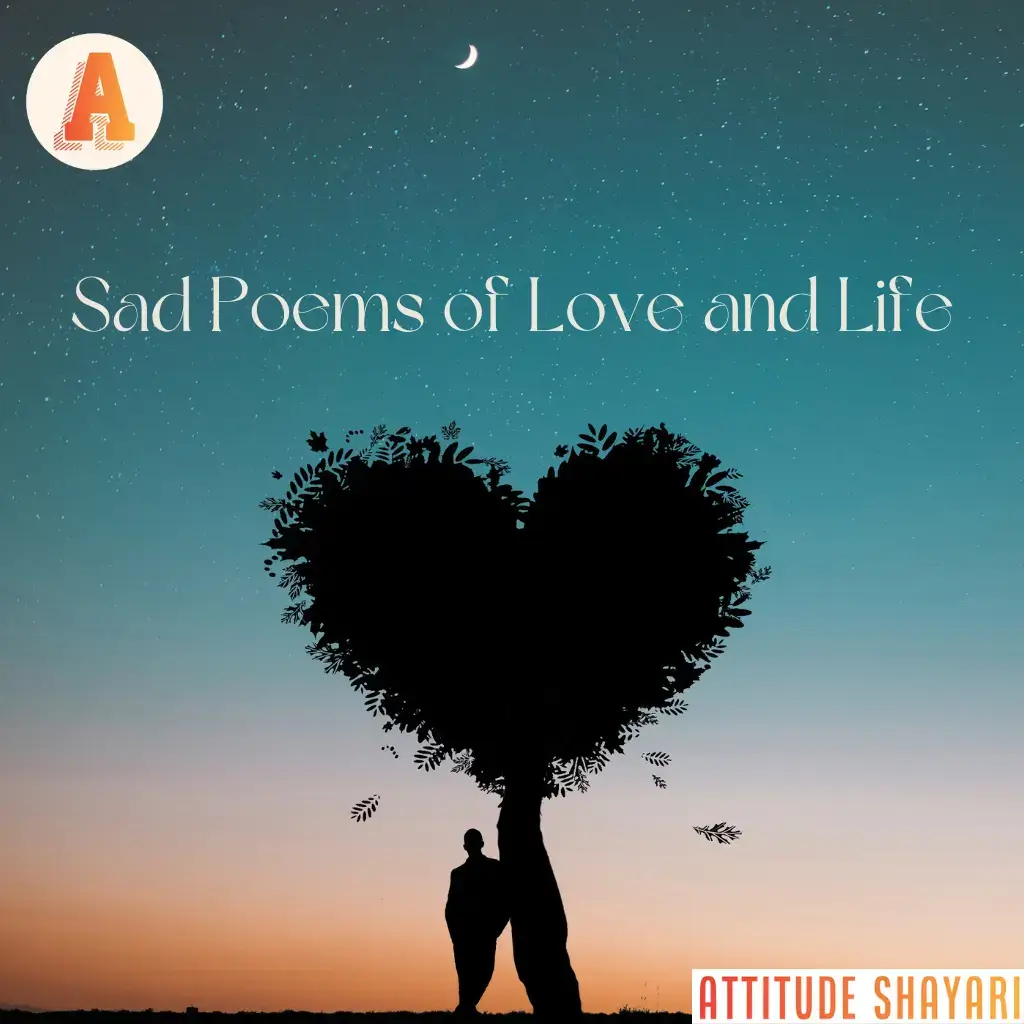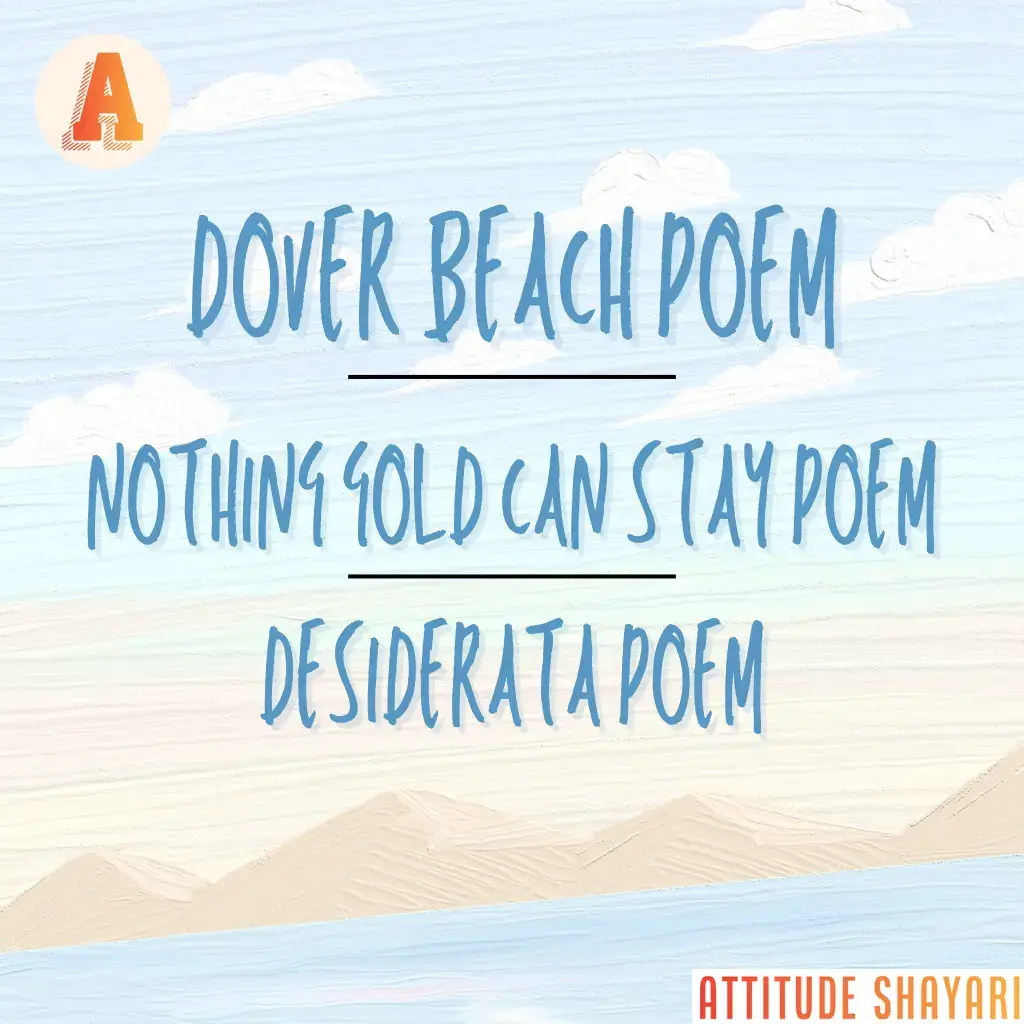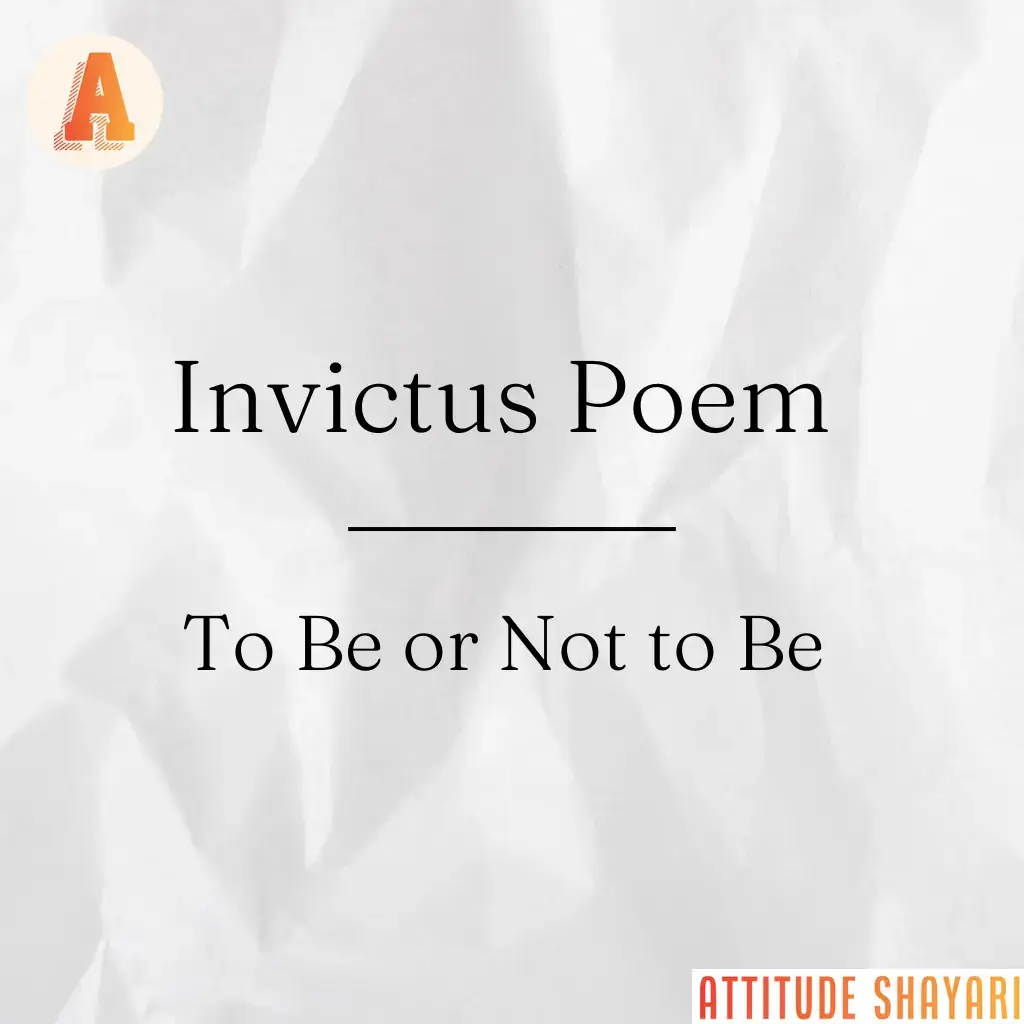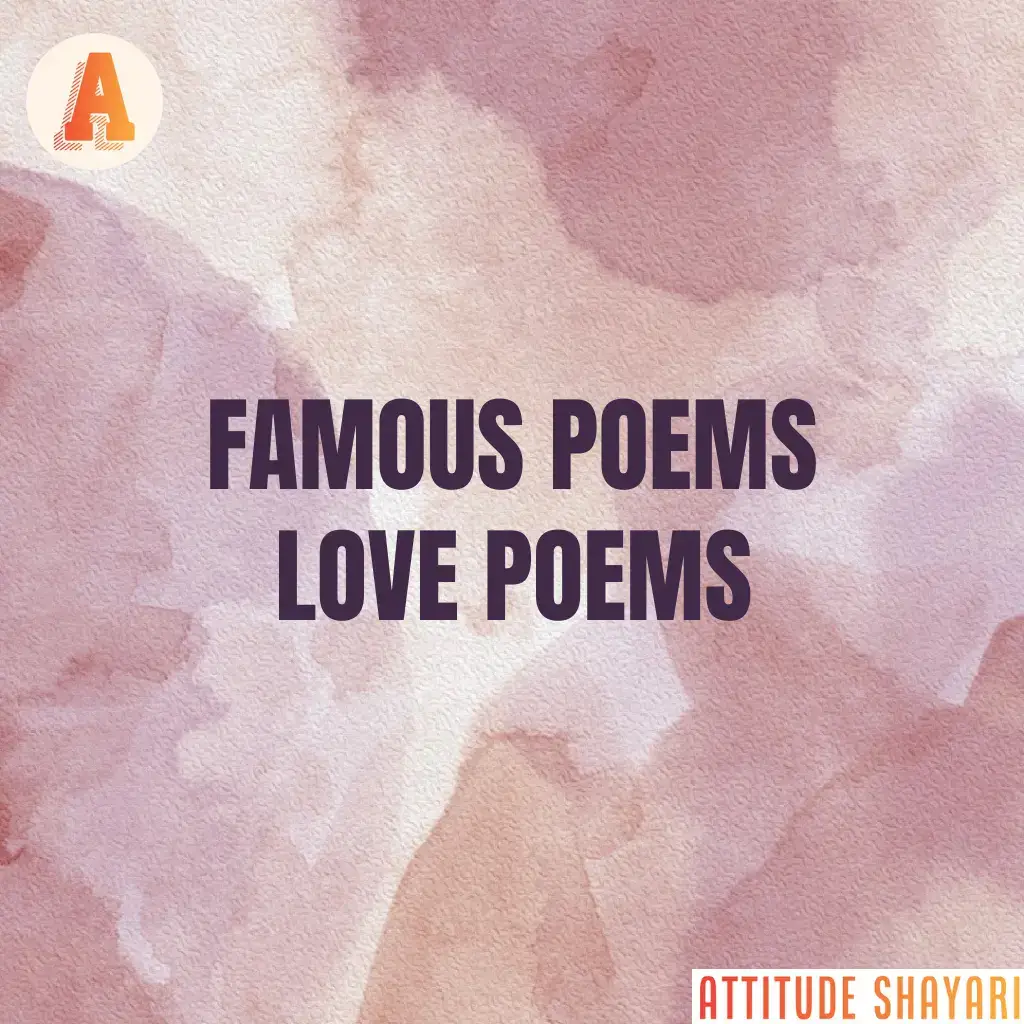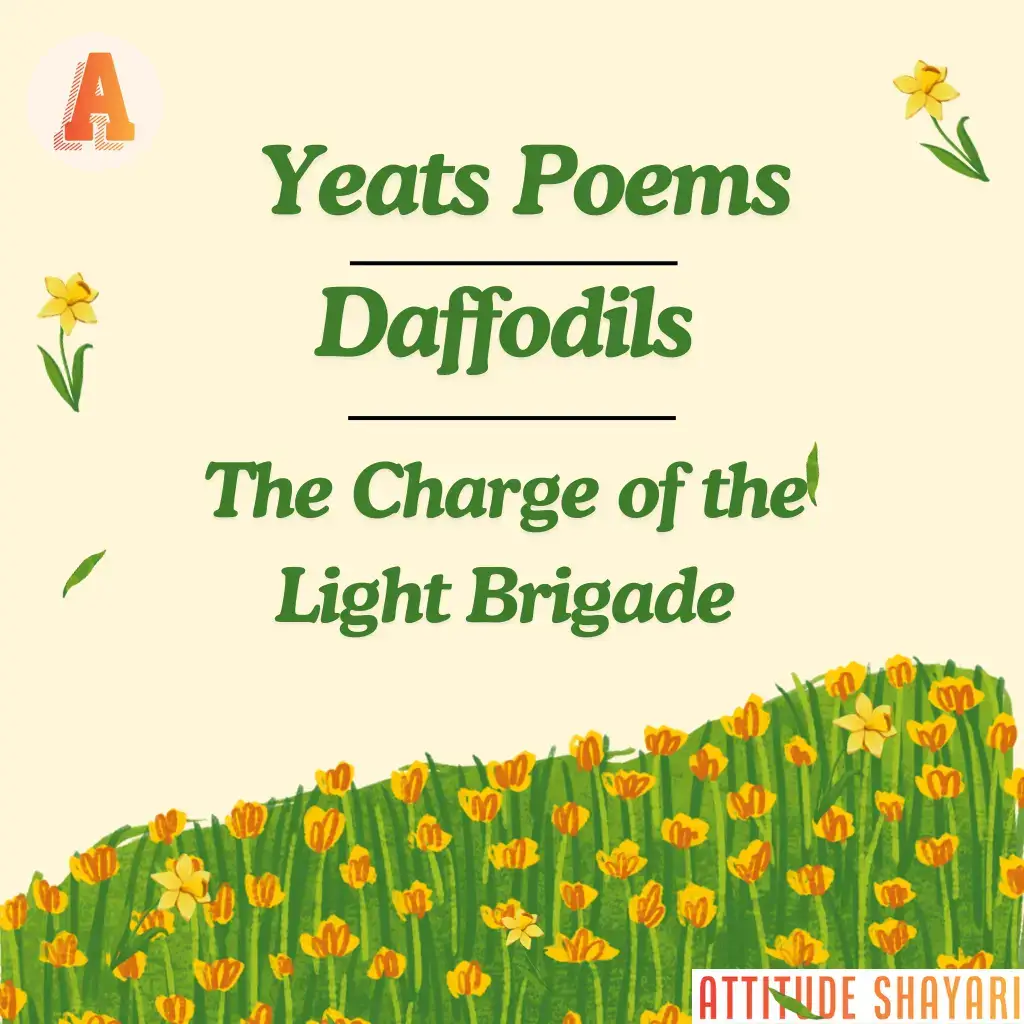
Yeats Poems written by William Butler Yeats. He was a famous Irish poet who is known for his beautiful and thoughtful poetry. He wrote about many poems on multiple themes, including love, Irish politics. His poems often explored deep emotions, like longing and passion. Yeats’s poetry continues to touch the heart of the readers even today. His work is often filled with rich image which makes his words vivid and alive.
Daffodils which is a well-loved poem by William Wordsworth. In this poem, he describes a beautiful scene of golden daffodils which are swaying in the breeze. The sight of the flowers brings him joy and peace, even after he has left the scene. The poem celebrates the beauty of nature and how it can lift our spirits. It is a simple yet powerful reminder that the beautiful moments in nature can bring us lasting happiness and comfort.
The Charge of the Light Brigade written by Alfred Lord Tennyson is a powerful poem that tells us the story of a brave group of soldiers who rode the battle during the Crimean War. They knew that they were riding into the danger, the soldiers followed their orders and fought courageously. The poem honors their bravery and sacrifice, even in the face of overwhelming odds. His vivid descriptions and string rhythm capture the intensity of the battle which makes it one of the most famous war poems in English literature.
Yeats Poems
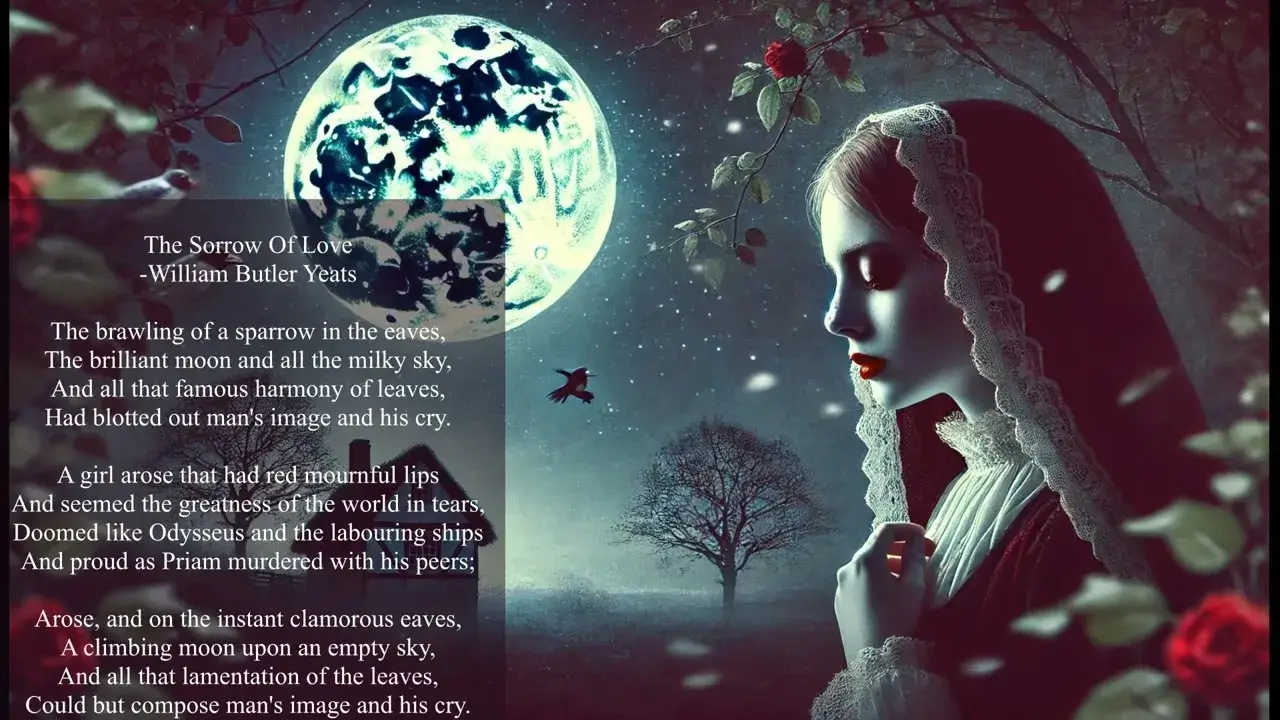
[quote]When you are old and grey and full of sleep,
And nodding by the fire, take down this book,
And slowly read, and dream of the soft look
Your eyes had once, and of their shadows deep;How many loved your moments of glad grace,
And loved your beauty with love false or true,
But one man loved the pilgrim soul in you,
And loved the sorrows of your changing face;And bending down beside the glowing bars,
Murmur, a little sadly, how Love fled
And paced upon the mountains overhead
And hid his face amid a crowd of stars.[/quote]
[quote]I MADE my song a coat
Covered with embroideries
Out of old mythologies
From heel to throat;
But the fools caught it,
Wore it in the world’s eyes
As though they’d wrought it.
Song, let them take it,
For there’s more enterprise
In walking naked. [/quote]
[quote]HERE at right of the entrance this bronze head,[quote] I DREAMED that one had died in a strange place
Human, superhuman, a bird’s round eye,
Everything else withered and mummy-dead.
What great tomb-haunter sweeps the distant sky
(Something may linger there though all else die)
And finds there nothing to make its terror less
Hysterica passio of its own emptiness?No dark tomb-haunter once; her form all full
As though with magnanimity of light,
Yet a most gentle woman; who can tell
Which of her forms has shown her substance right?
Or maybe substance can be composite,
profound McTaggart thought so, and in a breath
A mouthful held the extreme of life and death. [/quote]
Near no accustomed hand,
And they had nailed the boards above her face,
The peasants of that land,
Wondering to lay her in that solitude,
And raised above her mound
A cross they had made out of two bits of wood,
And planted cypress round;
And left her to the indifferent stars above
Until I carved these words:
She was more beautiful than thy first love,
But now lies under boards.[/quote] [quote]SICKNESS brought me this
Thought, in that scale of his:
Why should I be dismayed
Though flame had burned the whole
World, as it were a coal,
Now I have seen it weighed
Against a soul? [/quote]
Read More: Simple and Short Poems About Life and Family
Charge of the Light Brigade Poem
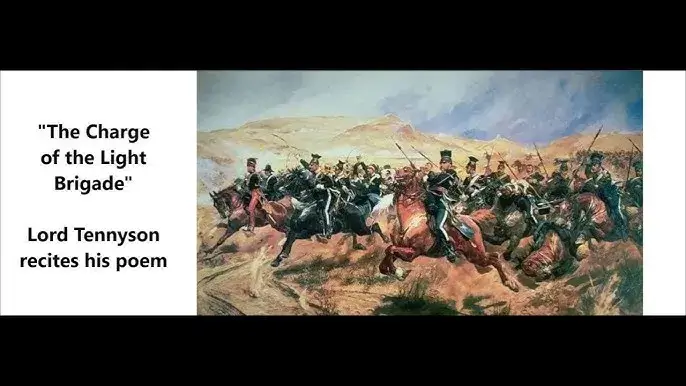
Half a league onward,
All in the valley of Death
Rode the six hundred.
‘Forward, the Light Brigade!
Charge for the guns! ‘ he said:
Into the valley of Death
Rode the six hundred.
‘Forward, the Light Brigade! ‘
Was there a man dismay’d?
Not tho’ the soldier knew
Some one had blunder’d:
Their’s not to make reply,
Their’s not to reason why,
Their’s but to do and die:
Into the valley of Death
Rode the six hundred.[/quote]
[quote] Cannon to right of them,
Cannon to left of them,
Cannon in front of them
Volley’d and thunder’d;
Storm’d at with shot and shell,
Boldly they rode and well,
Into the jaws of Death,
Into the mouth of Hell
Rode the six hundred.[/quote]
[quote] Flash’d all their sabres bare,
Flash’d as they turn’d in air
Sabring the gunners there,
Charging an army, while
All the world wonder’d:
Plunged in the battery-smoke
Right thro’ the line they broke;
Cossack and Russian
Reel’d from the sabre-stroke
Shatter’d and sunder’d.
Then they rode back, but not
Not the six hundred.[/quote]
[quote] Cannon to right of them,
Cannon to left of them,
Cannon behind them
Volley’d and thunder’d;
Storm’d at with shot and shell,
While horse and hero fell,
They that had fought so well
Came thro’ the jaws of Death,
Back from the mouth of Hell,
All that was left of them,
Left of six hundred.[/quote]
[quote] When can their glory fade?
O the wild charge they made!
All the world wonder’d.
Honour the charge they made!
Honour the Light Brigade,
Noble six hundred![/quote]
Daffodils William Wordsworth

That floats on high o’er vales and hills,
When all at once I saw a crowd,
A host, of golden daffodils;
Beside the lake, beneath the trees,
Fluttering and dancing in the breeze. [/quote] [quote]Continuous as the stars that shine
And twinkle on the Milky Way,
They stretched in never-ending line
Along the margin of a bay:
Ten thousand saw I at a glance,
Tossing their heads in sprightly dance. [/quote] [quote]The waves beside them danced, but they
Out-did the sparkling waves in glee:
A Poet could not but be gay,
In such a jocund company:
I gazed—and gazed—but little thought
What wealth the show to me had brought: [/quote] [quote] For oft, when on my couch I lie
In vacant or in pensive mood,
They flash upon that inward eye
Which is the bliss of solitude;
And then my heart with pleasure fills,
And dances with the daffodils.[/quote]
Blake London Poem
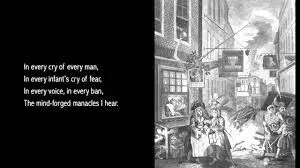
Near where the charter’d Thames does flow,
And mark in every face I meet
Marks of weakness, marks of woe.
In every cry of every man,
In every Infant’s cry of fear,
In every voice, in every ban,
The mind-forg’d manacles I hear.
How the Chimney-sweeper’s cry
Every blackning Church appalls;
And the hapless Soldier’s sigh
Runs in blood down Palace walls.
But most thro’ midnight streets I hear
How the youthful Harlot’s curse
Blasts the new-born Infant’s tear,
And blights with plagues the Marriage hearse.[/quote]
